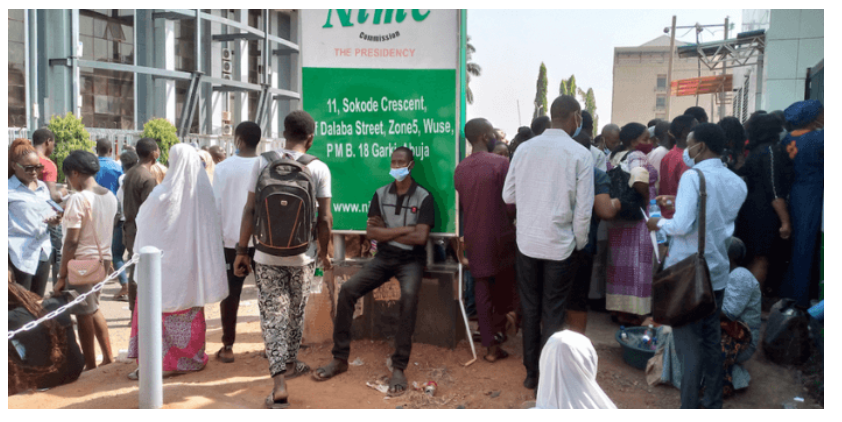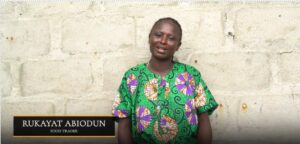The progress recorded by NIMC for NIN (National Identity Number) enrolment in the past two years makes one wonder what it could mean for financial inclusion targets. Imagine a situation where an individual is automatically signed up for a mobile wallet or bank account at the point of NIN enrolment; that would easily translate to over one-hundred million adults financially included. This thinking was inspired by Mr. Olu Akanmu, the now former president of O-Pay, during the recently concluded Inclusion for all Dialogues; an issues-based and evidence-backed multi-stakeholder convening to inform conversations and discuss solutions to the barriers that prevent digital financial inclusion in Nigeria. He queried why there was such a huge gap between the number of adult Nigerians enrolled for NIN and those that are financially included.
This query underscores the core of our campaign on ID access for the most excluded groups, giving that we have firmly established, through a range of reliable data sources; that while owning an ID does not automatically translate to financial inclusion; owning an ID is a strong catalyst for financial inclusion.
Women in rural communities are the least unlikely to have ID due to limitations that are related to their way of life, where they live, level of education and exposure. However, their engagement in multiple livelihood activities to sustain their families indicates their strong economic nature and a need to further enable that as they remain poor. According to Professor Janice Olawoye, who was the lead investigator for the research study commissioned by Inclusion for all, “ID is a means to an end and not an end in itself”. She uses the analogy of having a driver’s licence and not having a car to describe how ineffective it is to have a NIN and not be able to use it to access financial and social services that will inadvertently empower them and lift them out of poverty. In other words, formal ID ownership for excluded groups needs to be harnessed for the myriad of intrinsic benefits it can be used to fulfil.
This notion is further reinforced by Dr. Paul Oluikpe the head of the Financial Inclusion Delivery Unit at the Central Bank of Nigeria, who believes that ID is a critical requirement for accessing financial services. According to him, “We ride on ID for KYC, if we don’t know who you are, we cannot extend service to you”.
The focus of the convening was to highlight the specific barriers to rural Nigerian women’s access to ID and the role ID ownership plays in their livelihood and economic empowerment. While one could argue that there are multiple factors that can drive women’s economic empowerment, formal ID is a veritable tool to do so sustainably from a fundamental standpoint. According to Uche Chigbo, Director, Operations at NIMC “Identity is a public good and a tool for empowerment, which shows people that they have become part of a system, so everyone should have a government ID”.
While one could argue that there are multiple factors that can drive women’s economic empowerment, formal ID is a veritable tool to do so sustainably from a fundamental standpoint.
That said, understanding why ID is important for these groups of women from our perspective is not enough and does not translate into the outcomes we desire until the beneficiaries themselves have a more robust understanding. From the field interviews with some of the respondents, (all women) – some have a uni-dimensional understanding of what owning a NIN or a Voter’s card means, clearly based on the information they have been provided. This is a sentiment shared by Dr. Osasuyi Dirisu the Executive Director, Policy Innovation Centre when she made the statement that, “Trust is a key ingredient for rural women and providing information in simple to understand ways while selling the value of owning an ID is very important”.
Clearly, enrolment partners have to be equipped to sell the entire value proposition of owning a NIN in a way that engenders the trust of the beneficiaries. We know that the value of owning an ID is beyond its immediate functional use but the life-changing access it can catalyse in terms of financial and economic empowerment for the poor. Kaduna State’s digital ID enrolment journey for its citizens with an intentional approach to ensure the poor are not left behind, is a compelling case study to guide other progressive States like Ekiti and Edo which had key representation at the event.
The goal of the discourse with a broad range of stakeholders was to explore and establish how to ensure that the excluded populations have access to digital ID and digital financial services to engender a more sustainable livelihood for them and ultimately lift them out of poverty.
Following an impactful and insightful convening, one of our goals at Inclusion for all is to facilitate a collective effort to explore how the digital public infrastructure model used in India can be used in Nigeria to accelerate the digital financial inclusion of the most vulnerable groups.
Collins-Ogbuo is head, Inclusion for all Initiative







